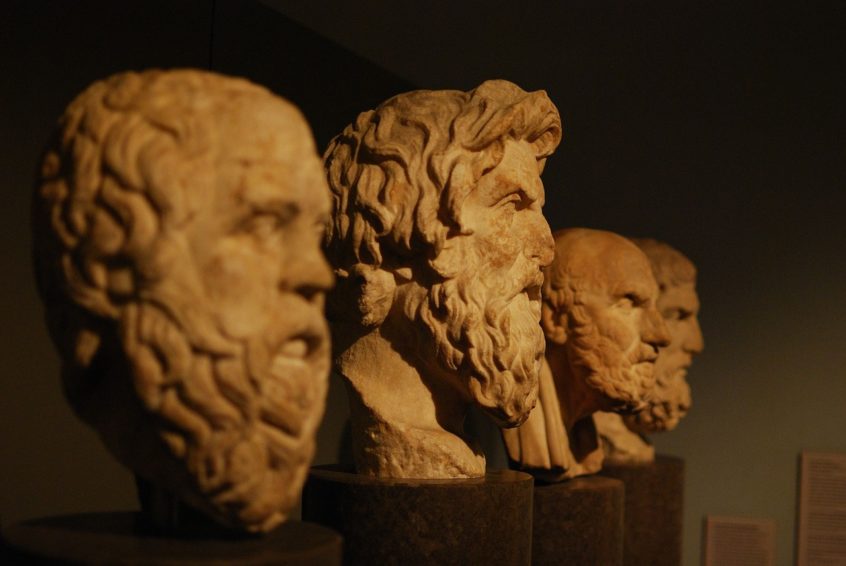The formation of the concept of Physical Literacy (PL) was initially drawn from a combination of different philosophies, namely monism, phenomenology, and existentialism (Whitehead, 2007). On their own, these philosophies are a separate body of knowledge, but impressions within each philosophy were drawn upon during the construction of PL (Whitehead, 1990). That is why it is important to offer this brief appreciation regarding the philosophical understanding of PL.
A fundamental aspect when developing the philosophy of PL was the use of the monist viewpoint, which believes the body is not inferior to the mind. Monism, when compared to a dualist approach (which sees the mind as more important than the body) acts as a guiding principle by suggesting that these two elements (mind and body) are an integrated entity that work together in harmony (Gill, 2000).
Next, the philosophy of Existentialism recalls the works of Sartre (1946) who offered that ‘man is nothing else but that which he makes of himself’, suggesting that we, as individuals, are ‘a direct result of the experiences we have had’ (Durden-Myers 2019). In short, we must consider how we think, act, feel and live during an individual experience, which applies when being in both a sedentary and physical state.
Adding to our understanding, the philosophy of phenomenology, believing human perceptions are unique to the individual themselves, and that to have a body is to be ‘intervolved in a definite environment’ (Merleau-Ponty, 1945). Merleau-Ponty has certainly acted as a guiding light to aid our deeper understanding when considering the philosophical concept of PL, offering that we are more than just participants acting within the world, suggesting that we see ourselves through a personalised lens and are able to co-create a sense of worth with our ability to interact with everything around us.
The work of Nussbaum (2000) added more value to the philosophical assembly, illustrating that people need choices, and choices will shape behaviours. As our requirements change so the actions may no longer have the same value. Within the context of PL, if we engage in a prescriptive task, the motivation to engage in the same task again is less likely. Thus, we need to lessen the use of prescribed activities and heighten the use of allowing individual choice when deciding what, or when to engage in physical pursuits.
Underpinning PL with these philosophies has allowed the foundation of creating a concept universally applicable to all individuals and assisted in shaping the first definition of PL from Whitehead (2010) who wrote ‘the motivation, confidence, physical competence, knowledge and understanding to maintain physical activity throughout the life course’. Although, this initial definition of PL did not acknowledge individual ownership, as in the works of Patricia Maude (2001) who recognised the importance of empowering ourselves to take responsibility for our own learning and development. The prevalence of taking responsibility for engagement in physical activity was an important aspect to maintain the integrity of the concept of PL, and the original definition was re-developed by Margaret Whitehead in 2013 to include a deeper philosophical understanding that we need ‘to value and take responsibility for maintaining purposeful physical activities throughout the life course’.
Accepted this deeper understanding, The International Physical Literacy Association (IPLA), sought permission from Margaret Whitehead, to ensure the elements of being motivated, confident and physical competent to not just engage in physical activity but to fully understand why we are doing so have been a consistent message throughout. As a result, the global definition when describing the term PL has been accepted as ‘the motivation, confidence, physical competence, knowledge and understanding to value and take responsibility for engagement in physical activities for life’.
Although now defined, the use of the term PL hasn’t been a smooth integration within society, as there remains some confusion around the term. This is partially due to the practice of the concept being criticised in comparison to physical education (PE). It must be stressed that PL is not a replacement to PE (Lynch & Soukup, 2016), nor is PL a singular subject to be taught within an educational curriculum. However, PL has gained more traction internationally with a wider global audience recognising the holistic potential of PL to offer humanity an opportunity for staying active and sustaining one’s longevity through a healthy life (Whitehead, 2018).
By grasping a deeper understanding of the philosophical journey to help create a clear definition, and accepting that the definition of PL has changed, and may still change in the future, owning our involvement in physical activity only allows our pursuit towards future human flourishment.
References
- DURDEN-MYERS, E., 2019. Physical Literacy A Guide of Educators. Scholary
- GILL, J., (2000) The Tacit Mode. New York: State University of New York Press
- INTERNATIONAL PHYSICAL LITERACY ASSOCIATION., 2017. Defining Physical Literacy. Available from: https://www.physical-literacy.org.uk/defining-physical-literacy/
- LYNCH, T. & G, SOUKUP, 2016. “Physical education”, “health and physical education”, “physical literacy” and “health literacy”: Global nomenclature confusion. Cogent Education, 3(1), 1-22
- MAUDE, P., 2001. Physical Children, Active Teaching: Investigating Physical Literacy. New York: Open University Press
- MERLEAU-PONTY, M., 1945. Phenomenology of Perception, Paris: Gallimard
- SARTRE, J., 1946. Existentialism and Humanism. Paris: Les Editions Nagel
- NUSSBAUM, M., 2000.Women and Human Development: The Capabilities Approach. New York: Cambridge University Press
- WHITEHEAD, M., 1990. Meaningful Existence, Embodiment and Physical Education. Journal of Philosophy of Education, 24(1), 3-14
- WHITEHEAD, M., 2007. Physical Literacy: Philosophical Considerations in Relation to Developing a Sense of Self, Universality and Propositional Knowledge. Sport, Ethics and Philosophy, 1(3) 281-298
- WHITEHEAD, M., 2010. Physical Literacy: throughout the lifecourse. Oxon: Routledge
- WHITEHEAD, M., 2013. The history and development of Physical Literacy. Journal of Sport Science and Physical Education, 65, 22-29
- WHITEHEAD, M., 2018. The Value of Fostering Physical Literacy. Journal of Teaching in Physical Education, 37, 252-261

